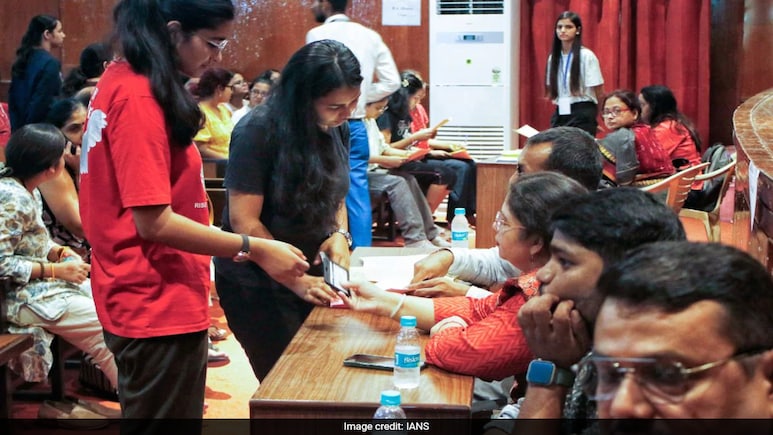
The University of Delhi (DU) has issued strict guidelines to prevent defacement of its property during the Delhi University Students' Union (DUSU) election campaigns. These new rules aim to maintain the campus environment's cleanliness and dignity while ensuring a fair and disciplined election process.
As per the guidelines, every candidate who files a nomination for any DUSU post must sign an anti-defacement bond worth Rs 1 lakh. This bond serves as a commitment to refrain from any activity that damages or defaces university or college property during the election campaign. If the candidate or their supporters are found violating these rules, the bond amount will be forfeited. This mechanism is similar to the anti-ragging affidavit students sign during admission, emphasizing the seriousness of maintaining discipline on campus.
The university mandates all colleges, departments, and affiliated centers to conduct orientation and sensitisation programs aimed at educating students about the importance of preserving the campus environment and following the election code of conduct. These programs are designed to raise awareness about the negative impact of defacement and to encourage respectful campaigning.
To further regulate campaign activities, DU has designated specific areas called "Walls of Democracy" where candidates can display their posters and campaign materials. Each institution is required to limit these campaign displays to just two authorized locations, thereby reducing the chances of random or widespread wall painting and unauthorized poster pasting across the campus.
In addition, an online portal will be launched for students and staff to report any instances of defacement quickly. This portal will facilitate prompt action from university authorities to address complaints. The guidelines also address issues such as impersonation and the deliberate misspelling of candidates' names on campaign posters. If such cases arise, the candidate responsible must remove the disputed material immediately and file a police report within 24 hours. Failure to comply may lead to fines up to Rs 25,000, suspension from university activities, or even rustication.
The campaign methods allowed under the new guidelines are also strictly defined. Only electronic media may be used legitimately for campaigning. Traditional methods like putting up posters indiscriminately, holding rallies, roadshows, using loudspeakers, playing dhols, or organising 'shakti pradarshan (show of strength) and vehicle processions are prohibited. These restrictions continue to be enforced even after the election results are declared, ensuring that the campus remains peaceful and undisturbed.
The university has clarified that for all admission and election purposes, the name recorded in a student's Class 10 and Class 12 certificates will be considered valid. Any name change requests must follow official government procedures, preventing confusion or misuse during the election process.
To ensure these rules are effectively implemented, DU will establish a 'University Committee for Prevention of Defacement of Property.' Similarly, each college will have its own monitoring panel. The contact details of these committees will be displayed on the respective institutional websites and notice boards, making it easier for students to reach out with concerns or complaints.
In an effort to promote substantive, issue-based campaigns rather than personality-focused contests, colleges have been encouraged to organise debates among candidates. These debates can be recorded and uploaded online, providing students with broader access to candidates' views and encouraging informed voting.
Furthermore, the entry of outsiders into colleges and departments during the election period will be strictly restricted. The use of biometric or facial recognition systems is recommended to monitor and control access, enhancing campus security.
The Election Committees at both the university and college levels will be responsible for enforcing these guidelines and taking disciplinary action where needed.
The guidelines firmly state, "Any act of defacement will be treated as gross indiscipline and dealt with under strict disciplinary action."
